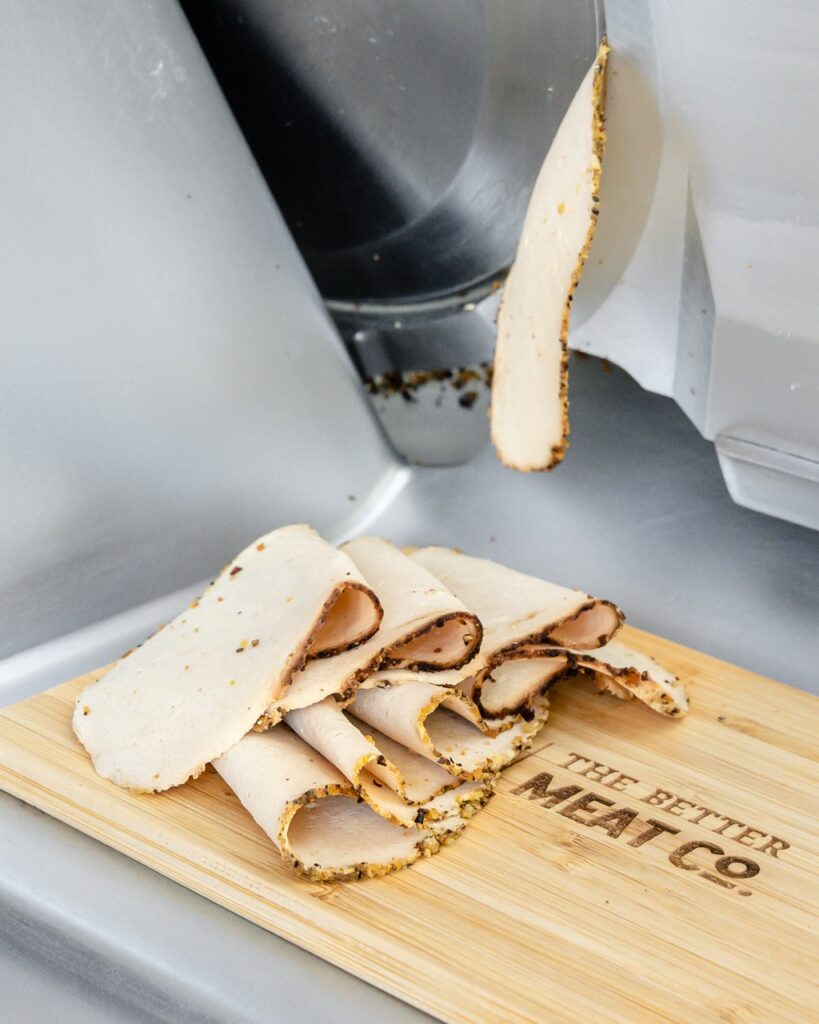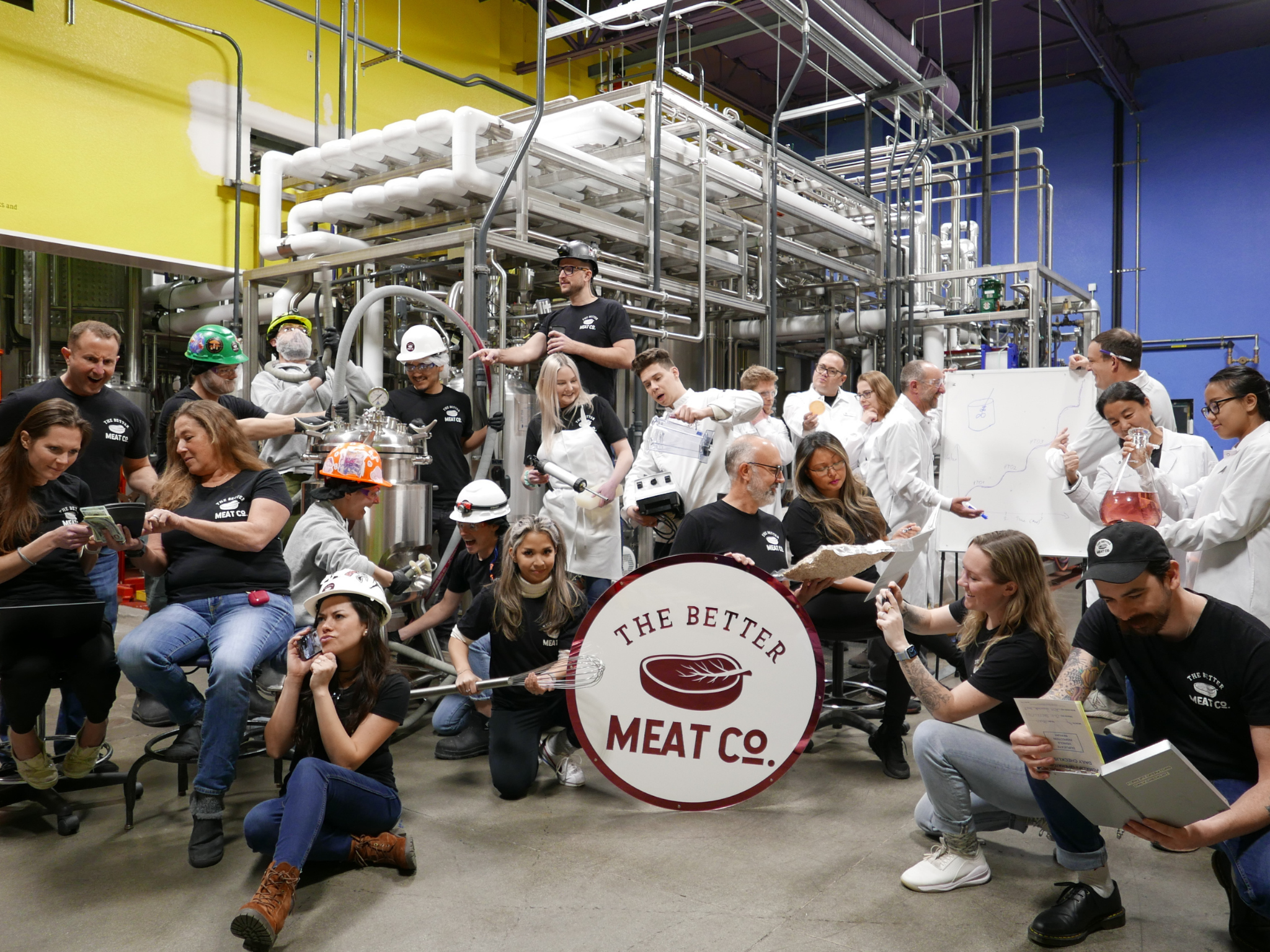US Grants Patent for Mycoprotein Startup to Turn Potato Waste Into Sustainable Meat
4 Mins Read
Food tech startup The Better Meat Co has received its sixth patent in the US, which covers a method to produce mycelium proteins using potato waste as a feedstock.
As it ramps up production and mobilises capital to enter its next growth phase, US startup The Better Meat Co has won a sixth patent for its mycoprotein technology.
The United States Patent and Trademark Office granted the West Sacramento startup a patent covering a process to produce mycelium protein using potato-processing sidestreams as a substrate. This involves growing species within the Neurospora genus and Aspergillus genus in a potato-based liquid medium to create a high-protein, high-fibre biomass.
Known as Rhiza, the mycoprotein biomass can then be dried, sized and hydrated into various food products or blended with plant- or animal-based ingredients to create more sustainable proteins.
It’s a whole-biomass ingredient with all essential amino acids, a protein content of 50% by dry weight (higher than eggs), and a protein digestibility score of 0.87-0.96 (close to casein, beef and eggs). And unlike conventional meat, it has zero cholesterol and virtually no saturated fat.
‘Nearly unlimited’ access to potato sidestreams

“Sidestreams from potato processing include pieces of potato that aren’t the right length for french fries, sub-size potatoes, and more,” explained The Better Meat Co founder and CEO Paul Shapiro.
The firm sources the byproducts from a potato processing partner and has access to what Shapiro describes as a “nearly unlimited” quantity.
“We are able to take low-value potato (starch) and convert it within hours into high-value protein (mycelium), so even just using non-sidestream potatoes can be advantageous as a carbon source,” he said.
The patent also covers downstream applications such as pasteurising the ingredient, grinding it before being blended with other ingredients, shaping it into nuggets, sausage links, and patties, and mixing it with natural flavours to mimic chicken, beef, or pork.
“Our previous five patents cover the creation of shelf-stable granules of Neurospora,” said Shapiro. “This new patent covers both Neurospora and Aspergillus grown on potatoes. It’s fairly expansive.”
Neurospora crassa has an extensive history of use in food globally. It’s used to make oncom, a traditional fermented Indonesian produced from byproducts like soy pulp (or okara), in the starter mass for fermenting tiquira (a Brazilian alcoholic drink), and is one of the organisms present in Roquefort cheese in southern France.
Aspergillus oryzae, meanwhile, is a type of koji mould that forms the base of common food and beverage products, like miso, mirin and sake.
“We have used a variety of carbon sources with success to make our mycoprotein, including carbon coming from corn, cane, rice, and potato,” said Shapiro. This will further reduce its already-low climate footprint, and strengthen its position in the fermentation world.
The Better Meat Co calls for end to tariff war

The patent win comes weeks after The Better Meat Co signed a letter of intent with one of South America’s largest meat companies for the use of Rhiza in blended meat applications. This added to four other agreements from major meat producers in North America and Asia. Taken together, these deals are expected to bring $13M in annual revenue for the startup.
With partners like Hormel Foods and Maple Leaf Foods, the only way the firm can keep up with the growing demand for Rhiza is to scale up production. It currently operates a 9,000-litre pilot plant in Sacramento, though soon, the company will work with a co-manufacturer to produce mycoprotein on a 150,000-litre fermentation capacity.
“We can reach profitable revenue at a contract manufacturer in a shorter timeframe and with less capital investment than we could if we were going to build and operate our own fermentation factory,” Shapiro said, explaining the move.
The company has raised $27M from investors to date and last year received a $1.5M biomanufacturing grant as part of the US Department of Defense’s Distributed Bioindustrial Manufacturing Program (DBIMP) to scale up its operations. It is currently in the middle of a $15M fundraising round to support these expansion efforts.
The mycelium ingredient has received Generally Recognized as Safe (GRAS) certification from both the US Food and Drug Administration (FDA) and Department of Agriculture (USDA) to sell its mycoprotein stateside, as well as the Singapore Food Agency.
It was one of several alternative protein startups recognised as the World’s Top GreenTech Companies of 2025 by Time Magazine, alongside fellow fermentation players Planted and Meati, cultivated protein startups Mosa Meat and Wildtype, and plant-based meat pioneer Impossible Foods.
Asked how the global tariff war is impacting the business, Shapiro said: “Our hope is that the trade war will end and much-needed certainty can be offered to companies like our own. But most of our customers aren’t in the US, and we have the ability to produce outside of the US, too.”



